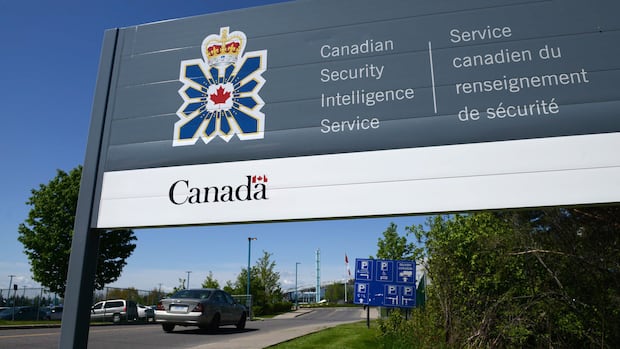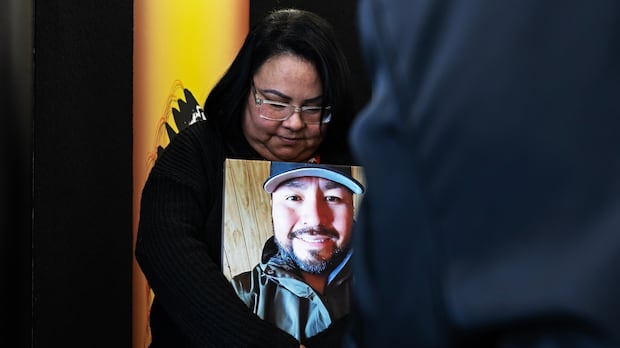With the fate of the Liberal government’s security bill in doubt, the historically secretive Canadian Security Intelligence Service is laying its cards on the table and arguing its investigations will suffer if changes aren't made.
Senior CSIS officials, speaking on the condition they not be named because of the nature of their job, said the agency is struggling to get court-approved information from electronic service providers, making it harder to investigate national security cases.
“If Canadians understood they would be increasingly worried,” said one source.
The comments from the service were raised in a recent briefing with CBC News about Bill C-2, the Liberal government’s controversial bill that has been roundly — and loudly — criticized by civil liberty and privacy groups.
CBC News requested the briefing to better understand the intelligence agency’s challenges and hear what it told the federal government before the bill — one of the first pieces of legislation tabled by Prime Minister Mark Carney’s government — was crafted.
The omnibus bill was initially introduced as legislation meant to bolster border security, but it also included lawful access and surveillance changes for CSIS and the RCMP.
 The National Security and Intelligence Committee of Parliamentarians published a report this year calling for changes to how organizations like CSIS can legally access Canadians' cellphone data for investigations. (Adam Radosavljevic/Shutterstock)
The National Security and Intelligence Committee of Parliamentarians published a report this year calling for changes to how organizations like CSIS can legally access Canadians' cellphone data for investigations. (Adam Radosavljevic/Shutterstock)After months of backlash, including from the Conservative Opposition, the government split the bill.
The federal government has signalled it will move quickly on getting the proposed border measures, now included in the new Bill C-12, through Parliament and into law.
But what comes next for Bill C-2 is unknown, with Public Safety Minister Gary Anandasangaree saying Bill C-2 will move ahead with the “right type of amendments,” without giving a sense of the timetable.
“We needed this yesterday,” said one of the CSIS sources, who argued the service’s ability to do its job is “eroding” without legislative changes.
CSIS already can go to telecommunications companies with a warrant approved by Federal Court and ask for a target's data, including voice messages, texts and locations.
'Critical for us to get access'But one CSIS source described dealing with the providers as the “Wild West,” where not everyone is willing or technologically capable of complying.
“It’s critical for us to get access,” they said, adding they don’t think all critics of the bill read it in detail.
The sources wouldn’t dive into case national security cases, but said there have been investigations with high-threat targets where CSIS has had warrants in hand and still couldn't get the electronic communication.
In those situations, “we are blind,” said one of the sources.
This is a political fumble that will have direct consequences on criminal and security investigations.- Leah West, national security lawyerSection 15 of the bill would require telecommunications and other providers to respond to lawful access requests and “permit the assessment or testing of any device, equipment or other thing that may enable an authorized person to access information.”
If passed, core electronic services would also legally have to have the operational and technical capabilities to “extract, organize and provide information and access to information pursuant to lawful access requests.”
To support compliance, the bill would include requirements with respect to record-keeping and reporting, as well as the confidentiality and security of information.
To get around the lawful access barriers, the CSIS sources said they find other ways “hunt and fish."
For example, they said they might instead deploy 24/7 surveillance, requiring dozens of officers and vehicles. The CSIS officials in the briefing said it comes at a financial and resource cost for an organization that doesn't “have money and resources to burn” and potentially puts their team at risk.
WATCH | NDP critic calls border bill alarming:Speaking in the foyer of the House of Commons after question period Tuesday, Vancouver East NDP MP and immigration and citizenship critic Jenny Kwan said she is concerned by the proposed Liberal border bill and the effects it could have on people immigrating to, and seeking asylum in Canada.Other members of the Five Eyes intelligence alliance, the U.S., Australia, New Zealand and the U.K., already have laws that impose requirements on service providers to facilitate access to data.
One of the CSIS sources said the Five Eyes are “shocked” by the Canadian system.
Privacy advocates call foulThe agency’s view is in sharp contrast to civil liberty and privacy groups who for months have raised concerns about what they see as overreach.
David Fraser, a privacy lawyer with the Canadian business law firm McInnes Cooper, said he doesn’t think the government has “adequately made the case for” needing Section 15.
“The police or CSIS go in front of a judge to get an intercept order for a wiretap or something along those lines … so the capabilities are already there but they want to have the ability to essentially require back doors into systems so that they can get direct access.”
Fraser said one of the most troubling aspects of the proposed legislation is the power and discretion it would give to the public safety minister.
“It’s just stunningly broad and extremely, extremely secretive.”
Another concern flagged by advocates is Section 14, which would give security agencies access to basic subscriber information held by internet service providers without a warrant if there are reasons to suspect that the information in question will assist in an investigation.
This is the most overreaching of overreaches that I've seen in the history of lawful access bills.- David Fraser, privacy lawerThe government has said in the past that medical professionals, including hospitals, doctors and psychiatrists' offices, a car rental company, hotels and banks would fall under that definition.
A CSIS source said Section 14 would codify what the service already does.
Fraser said the new legislation would lower the bar to get that basic subscriber information, such as names and phone numbers, to “just shy of a spidey sense.”
“This is the most overreaching of overreaches that I've seen in the history of lawful access bills that get introduced,” he said.
While the backlash has been swift, CSIS isn't standing alone arguing for changes to how it can legally access Canadians’ information.
One of the country's intelligence watchdogs recently released a report that found organizations like CSIS and the RCMP are hindered because they do not have the tools, policies and authorities in place to legally access communications during investigations.
The National Security and Intelligence Committee of Parliamentarians (NSICOP) warned that if left unaddressed, "these challenges will undermine Canada's national security in the long term" and could "impede Canada's continued ability to benefit from Five Eyes efforts … if it cannot meaningfully contribute to this partnership."
WATCH | Public safety minister on future of border :Public Safety Minister Gary Anandasangaree defends the Liberals' second version of their border bill from civil rights groups' continued concerns about data privacy and refugee claims, saying safety and liberties are not a 'binary choice' and that the party expects 'broader support' in the House of Commons."They state that encryption and the increasing volume, variety and velocity of digitally generated data make it difficult and sometimes impossible to gather the information needed to carry out effective investigations,” said the recently released report.
'It's just a mess'Leah West, a national security laywer and associate professor at at Carleton University in Ottawa, said past attempts to address those lawful access gaps have led to a lack of goodwill between those advocating for privacy rights and the demands on agencies like CSIS.
"The debate in the early years was always couched in 'Well, you're either with the pedophiles or you're with the terrorists or you are with us,'" she said.
“It's just a mess and it's a mess because nobody wants to have this political fight."
Both Liberal and Conservative governments have tried and failed to address lawful access gaps.
One of the last attempts by a Canadian federal government to expand security and intelligence agencies’ abilities in a digital world was Stephen Harper's government in 2014, when it was packaged as the Protecting Children from Internet Predators Act — originally titled the Lawful Access Act. It was withdrawn following a crescendo of opposition.
She worries the latest “fumble” from this Liberal government in introducing Bill C-2 will hurt serious investigations going forward.
“My fear is now that they're scared off of this that law enforcement will continue and security services will continue to suffer and criminal investigations will continue to be hampered because of this political fumble. And I'd be shocked if that wasn't the case,” she said.
“This is a political fumble that will have direct consequences on criminal and security investigations.”











